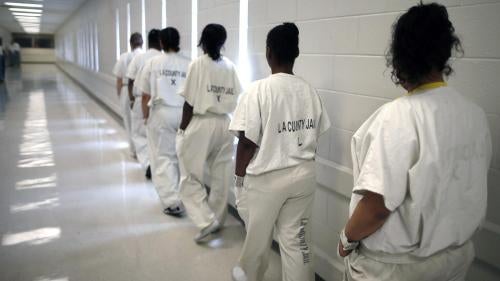Table of Contents
Pretrial detention, the practice of incarcerating individuals before they are tried in court, is a fundamental component of the American criminal justice system. While it serves essential purposes, such as ensuring public safety and securing court appearances, it is not without its challenges and controversies. In this article, we will delve into the complexities of pretrial detention in the United States, examining its purposes, its impact on detainees, and the ongoing efforts to address the associated challenges.
Pretrial detention, the practice of incarcerating individuals before they are tried in court, is a fundamental component of the American criminal justice system. While it serves essential purposes, such as ensuring public safety and securing court appearances, it is not without its challenges and controversies. In this article, we will delve into the complexities of pretrial detention in the United States, examining its purposes, its impact on detainees, and the ongoing efforts to address the associated challenges.
Balancing Act: Pretrial detention is a delicate balancing act. On one hand, it aims to protect the community by keeping potentially dangerous individuals off the streets and ensuring they attend their court hearings. On the other hand, it must respect the principle that individuals are innocent until proven guilty. Striking this balance is crucial, as excessive or unnecessary pretrial detention can result in profound consequences for detainees and their families.
Impact on Detainees: Detainees awaiting trial face a host of challenges. They may lose their jobs, housing, and contact with their families. This destabilization can lead to negative outcomes, including an increased likelihood of recidivism. Moreover, pretrial detainees often spend considerable time behind bars, sometimes even longer than their eventual sentences if found guilty. This can create a sense of injustice and erode trust in the criminal justice system.
Inequality and Disparities: The impact of pretrial detention is not uniform across the population. Vulnerable and marginalized communities are disproportionately affected. Individuals who cannot afford bail are more likely to experience pretrial detention, perpetuating socioeconomic and racial disparities within the system.
Efforts for Reform: Recognizing these issues, there is a growing movement to reform pretrial detention practices. Some jurisdictions are exploring alternatives to cash bail, such as risk assessment tools that determine an individual’s likelihood of appearing in court or committing new offenses. These reforms aim to reduce the unnecessary detention of low-risk individuals while ensuring public safety.
Legal Challenges: Legal challenges have also been mounted against the pretrial detention system, with arguments centered on constitutional rights. For instance, cases have been brought forth asserting that lengthy pretrial detentions violate the right to a speedy trial, due process, and equal protection under the law.
Community-Based Solutions: Some advocates argue for community-based solutions that provide support and supervision to individuals awaiting trial rather than incarcerating them. These solutions, which include pretrial services and electronic monitoring, offer a way to address concerns about public safety while minimizing the negative consequences of detention.
Ongoing Debate: The debate over pretrial detention is far from settled, and it encompasses a wide range of perspectives, from those advocating for its reform to those who see it as a necessary tool in the pursuit of justice. Addressing the complexities of this practice requires a multifaceted approach that considers the rights of the accused, public safety, and the need for a fair and equitable criminal justice system.
In conclusion, pretrial detention is a crucial but contentious aspect of the American criminal justice system. As discussions and efforts for reform continue, the goal is to strike a balance that upholds justice, respects individual rights, and ensures the safety of the community.
To delve further into this matter, we encourage you to check out the additional resources provided here: The Justice System | Bureau of Justice Statistics
Flight Risk Mitigation
One of the primary reasons for pretrial detention is to prevent defendants from fleeing before their court hearings. This is especially pertinent in cases where the defendant poses a significant flight risk.
Pretrial detention, a cornerstone of the criminal justice system, serves a multifaceted purpose, with the prevention of flight being one of its critical objectives. This objective is especially pertinent in cases where the defendant presents a significant flight risk, as it seeks to address the complexities and potential dangers associated with individuals who may evade the legal process.
1. Ensuring Court Appearance: The foremost purpose of pretrial detention is to guarantee the defendant’s presence at court hearings. When there is substantial evidence to suggest that a defendant may not willingly appear in court, pretrial detention becomes a necessary precaution to ensure that the judicial process proceeds smoothly and that justice is served.
2. Flight Risk Assessment: The decision to detain a defendant pretrial is typically made based on a comprehensive assessment of the individual’s flight risk. Factors such as prior history of non-appearance in court, ties to other jurisdictions, or access to resources that facilitate escape are considered when evaluating the necessity of detention.
3. Protecting Public Safety: In certain cases, defendants may not only pose a flight risk but also a threat to public safety. Pretrial detention is used to mitigate this risk by keeping potentially dangerous individuals in custody until their court hearings. This approach safeguards both the community and the integrity of the legal process.
4. Preservation of Evidence: Pretrial detention can also serve the purpose of preserving evidence and preventing witness tampering. In cases where a defendant’s release might lead to the destruction of evidence or attempts to influence witnesses, detention becomes essential to maintain the integrity of the investigation and legal proceedings.
5. Balancing Individual Rights: It is crucial to strike a balance between the presumption of innocence and the necessity of detention. Courts are tasked with carefully weighing the individual rights of defendants against the compelling interests of ensuring court appearances and protecting public safety.
6. Alternatives to Detention: Recognizing the potential drawbacks of pretrial detention, many jurisdictions have implemented alternatives. These alternatives, such as electronic monitoring, supervised release, or bail, aim to achieve the same objectives while allowing defendants to remain in the community under certain conditions.
7. Due Process and Fairness: The decision to detain a defendant pretrial is subject to due process and the principles of fairness. Defendants have the right to challenge their detention and present evidence to support their release. This legal safeguard ensures that detention is not arbitrary but based on substantive grounds.
8. Periodic Review: Pretrial detention is not indefinite; it is subject to periodic review. Courts assess whether the continued detention of the defendant remains justified based on evolving circumstances, such as changes in flight risk or new evidence.
In conclusion, the prevention of flight is a central element of pretrial detention, rooted in the principles of justice and the necessity of ensuring court appearances and public safety. While this practice is essential in certain cases, it also demands careful consideration of individual rights, due process, and the pursuit of alternatives that achieve the same objectives with minimal impact on defendants’ liberty. Balancing these competing interests is an ongoing challenge in the pursuit of a fair and effective criminal justice system.
Explore this link for a more extensive examination of the topic: Making Sense of Pretrial Risk Assessments – NACDL
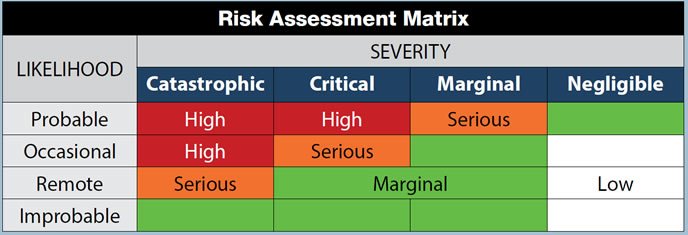
Public Safety
Pretrial detention is also utilized to protect the community from individuals who are considered a danger if released. Defendants who may pose a threat to others or have a history of violent behavior are often held to ensure public safety.
Pretrial detention serves a dual purpose within the criminal justice system. While it is indeed a tool for ensuring that defendants appear in court as required, it is also a means of safeguarding the community from potential harm posed by individuals who may be deemed a danger if released. This aspect of pretrial detention highlights a crucial balancing act between the presumption of innocence and public safety:
Presumption of Innocence: One of the cornerstones of the American criminal justice system is the presumption of innocence until proven guilty. Pretrial detention, in essence, temporarily suspends this presumption for individuals awaiting trial. This practice has drawn scrutiny from reform advocates who argue that it can lead to the unnecessary incarceration of people who have not yet been convicted of a crime.
Public Safety Considerations: On the other hand, public safety is of paramount concern to society and the criminal justice system. Defendants who are considered a danger to others or have a history of violent behavior present a real and immediate concern. Pretrial detention in such cases is justified on the grounds that it prevents potential harm to the community by keeping these individuals off the streets pending their trial.
Risk Assessment Tools: To strike a balance between these competing interests, some jurisdictions have implemented risk assessment tools. These tools evaluate various factors, such as a defendant’s criminal history, flight risk, and potential threat to public safety, to inform pretrial release decisions. The goal is to make detention decisions more data-driven and less reliant on subjective judgments.
Alternatives to Detention: Advocates for criminal justice reform emphasize the importance of alternatives to pretrial detention, especially for nonviolent defendants. These alternatives can include electronic monitoring, supervised release, or participation in community-based programs. By offering alternatives, the system can reduce the unnecessary incarceration of individuals awaiting trial, while still addressing public safety concerns.
Legal Challenges and Due Process: Pretrial detention decisions are not immune to legal challenges. Defendants have the right to challenge their detention, and judges must consider factors like the strength of the evidence and the defendant’s ties to the community. Ensuring due process in these decisions is crucial to upholding the principles of justice.
Balancing Act: Striking the right balance between the presumption of innocence and public safety is an ongoing challenge for the criminal justice system. Achieving this balance involves not only the implementation of risk assessment tools but also ongoing evaluation and reform to ensure that pretrial detention is used judiciously and in accordance with the law.
In conclusion, pretrial detention serves a complex dual role in the criminal justice system. It is intended to ensure that defendants appear in court while also addressing concerns about public safety. Achieving a fair and balanced approach to pretrial detention requires a nuanced understanding of the individual circumstances of each case, the use of data-driven risk assessment tools, and ongoing efforts to safeguard both the rights of defendants and the well-being of the community.
For additional details, consider exploring the related content available here How race impacts who is detained pretrial | Prison Policy Initiative

Court Appearance Guarantee
By detaining defendants before trial, the court can ensure their appearance at trial proceedings. This helps maintain the integrity of the judicial process.
nullFor additional details, consider exploring the related content available here GLOSSARY OF TERMS AND PHRASES RELATING TO BAIL AND …
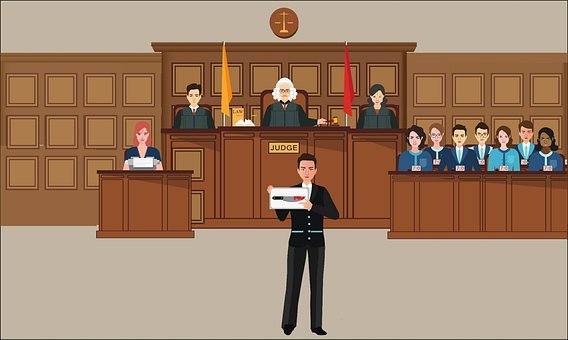
Presumption of Innocence
Detainees in pretrial custody are presumed innocent until proven guilty. However, pretrial detention can lead to the loss of jobs, housing, and community ties, creating significant hardships for individuals who may ultimately be found not guilty.
Detainees in pretrial custody are legally presumed innocent until proven guilty, a fundamental principle of the justice system aimed at safeguarding individuals’ rights. However, the consequences of pretrial detention extend far beyond the legal framework and can have profound and often life-altering impacts on the individuals involved.
While awaiting trial, individuals in pretrial custody can face the harsh reality of losing their jobs, housing, and community ties. The uncertainty of the duration of their detention makes it nearly impossible for them to maintain employment or housing, which are essential components of stability and self-sufficiency. This loss of economic stability and housing security not only exacerbates the stress and anxiety of the detainee but also places them at risk of homelessness and further involvement with the criminal justice system.
The disruption of community ties is another critical aspect of pretrial detention’s impact. Many individuals who are detained are active members of their communities, whether through family, social networks, or civic engagement. The isolation and separation from these vital connections can lead to feelings of alienation and despair, potentially pushing individuals further into a cycle of social disconnection.
Moreover, when individuals are ultimately found not guilty or receive minimal sentences, the damage inflicted during pretrial detention is often irreversible. Rebuilding one’s life after losing a job, home, and community support can be a daunting and lengthy process. This can perpetuate a cycle of instability and increase the likelihood of re-offending.
Addressing the collateral consequences of pretrial detention is crucial for a fair and just criminal justice system. Efforts should be made to ensure that individuals are not needlessly detained pretrial, with alternatives such as electronic monitoring or community supervision considered where appropriate. Additionally, support services should be available to help those released from pretrial detention quickly regain their footing in society, offering them a better chance at rehabilitation and preventing further involvement in the criminal justice system. Ultimately, the goal should be to balance the need for public safety with the principle of presumed innocence, striving for a system that respects and upholds the rights and dignity of all individuals involved.
To delve further into this matter, we encourage you to check out the additional resources provided here: Pretrial Release and Detention in Connecticut

Disproportionate Impact on Vulnerable Populations
Pretrial detention disproportionately affects low-income individuals who cannot afford bail. This leads to a situation where those who are economically disadvantaged are more likely to be detained before trial.
The disproportionate impact of pretrial detention on low-income individuals is a stark reality that highlights the systemic inequalities within the criminal justice system. This situation has far-reaching consequences that extend beyond just the individuals involved:
Cycle of Poverty: Detaining low-income individuals who cannot afford bail perpetuates a vicious cycle of poverty. The loss of income, employment, and housing during pretrial detention can lead to financial instability and make it even more challenging for these individuals to break free from the cycle of poverty upon release.
Inequality in Legal Representation: Those with limited financial resources often struggle to secure effective legal representation. Public defenders, who are often overworked and under-resourced, may have limited time to dedicate to their cases, potentially affecting the quality of defense for pretrial detainees.
Impact on Families: Families of detainees, particularly those who are the primary breadwinners, also suffer the consequences of pretrial detention. They may face economic hardships, housing instability, and increased stress as they navigate the challenges of maintaining a family unit while a loved one is incarcerated.
Disproportionate Minority Incarceration: Low-income communities are often disproportionately composed of racial and ethnic minorities. As a result, the overrepresentation of minorities in pretrial detention exacerbates existing racial disparities within the criminal justice system.
Inefficiencies in the Justice System: Detaining individuals solely due to their inability to pay bail not only perpetuates inequality but also strains the resources of the justice system. Jails become overcrowded, court dockets become clogged, and taxpayer dollars are spent to maintain a system that may not effectively serve its intended purposes.
Efforts to address these issues include:
Bail Reform: Many states and localities are reevaluating and reforming their bail systems to reduce reliance on cash bail and focus on risk assessments to determine whether individuals should be detained before trial.
Community-Based Alternatives: Implementing community-based programs, such as supervised release, electronic monitoring, and pretrial service agencies, offers alternatives to pretrial detention for low-risk individuals.
Improved Legal Representation: Ensuring access to quality legal representation, especially for low-income defendants, can help level the playing field and reduce the likelihood of unjust pretrial detention.
Education and Advocacy: Raising awareness about the impact of pretrial detention and advocating for policy changes can bring about reform at the local, state, and national levels.
Addressing the disparities in pretrial detention is a vital step in promoting a fair and equitable criminal justice system that upholds the principles of justice and individual rights for all, regardless of their economic circumstances.
Should you desire more in-depth information, it’s available for your perusal on this page: Criminal Justice Debt Problems

Psychological and Emotional Stress
The uncertainty and prolonged nature of pretrial detention can lead to severe stress and anxiety for detainees. They face the prospect of spending months or even years behind bars while awaiting trial.
The uncertainty and prolonged nature of pretrial detention can lead to severe stress and anxiety for detainees. They face the prospect of spending months or even years behind bars while awaiting trial.
This period of uncertainty can be particularly distressing because pretrial detainees have not been convicted of any crime. They are legally presumed innocent until proven guilty in a court of law. However, the harsh reality is that the conditions of pretrial detention can often resemble those of convicted prisoners. This incongruity between legal status and treatment can take a significant toll on the mental and emotional well-being of detainees.
One of the most challenging aspects of pretrial detention is the separation from their families and loved ones. Detainees are often unable to maintain their responsibilities and connections to the outside world. They may lose their jobs, struggle to provide for their families, and miss important life events. This isolation can contribute to feelings of loneliness and despair, exacerbating the stress they already experience.
Furthermore, the uncertainty surrounding the outcome of their cases can lead to feelings of powerlessness. Detainees may have limited access to legal resources, and the legal process itself can be lengthy and complex. They may worry about the potential consequences of a conviction, including the impact on their future, employment prospects, and relationships.
The conditions within pretrial detention facilities can also be harsh, with overcrowding, limited access to healthcare, and a lack of programming and support services. These conditions can further compound the stress and anxiety experienced by detainees. In some cases, individuals may accept plea deals simply to expedite their release, even if they believe they are innocent, due to the unbearable conditions of confinement.
The mental health consequences of pretrial detention can be profound. Detainees may experience symptoms of depression, anxiety disorders, and post-traumatic stress disorder. These mental health challenges can persist long after release, affecting their ability to reintegrate into society successfully.
To address these issues, there is a growing recognition of the need for reform in the pretrial detention system. Efforts are underway to reduce the use of cash bail, implement risk assessment tools, and provide more support services to detainees. Additionally, mental health services and legal aid are being made more accessible to address the unique needs of pretrial detainees.
In conclusion, the psychological impact of pretrial detention cannot be underestimated. The stress and anxiety experienced by detainees can have long-lasting consequences on their mental health and well-being. Reforming the pretrial detention system to prioritize fairness, access to resources, and mental health support is essential to mitigating these challenges and upholding the principles of justice and human rights.
Additionally, you can find further information on this topic by visiting this page: Incarceration nation

Bail Reform
The bail system has come under scrutiny for perpetuating inequality. Bail reform efforts seek to reduce reliance on cash bail, making it more equitable and emphasizing risk assessment to determine whether individuals should be detained pretrial.
nullTo delve further into this matter, we encourage you to check out the additional resources provided here: Detaining the Poor: How money bail perpetuates an endless cycle of …
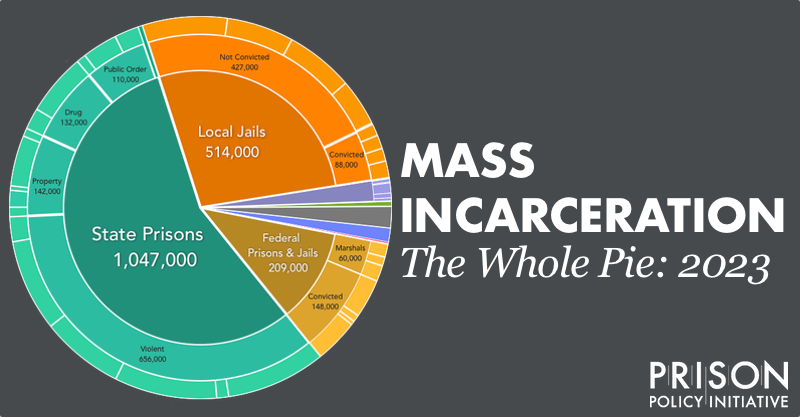
Overcrowding
Pretrial detention contributes to overcrowding in jails, creating numerous problems, including unsanitary conditions and increased violence.
Pretrial detention, while intended to serve the interests of justice, often leads to a cascade of issues within the criminal justice system. Expanding on the idea of overcrowding in jails due to pretrial detention:
Human Rights Concerns: Overcrowded jails can result in dire human rights violations. Inmates may be subjected to inhumane living conditions, including inadequate access to sanitation, healthcare, and nutrition. Such conditions not only violate the dignity of individuals but also compromise their physical and mental well-being.
Increased Violence and Safety Risks: Overcrowding creates a volatile environment where tensions run high. Inmates are often confined in close quarters, increasing the potential for conflicts and violence. This can endanger both inmates and correctional staff, making it challenging to maintain a safe and secure facility.
Limited Access to Rehabilitation and Support Services: Overcrowded jails strain resources, diverting funds and staff away from essential rehabilitation and support programs. This means that inmates miss out on opportunities for education, job training, mental health counseling, and substance abuse treatment, which are crucial for reducing recidivism.
Disproportionate Impact on Vulnerable Populations: Overcrowding disproportionately affects vulnerable populations, including those with mental health issues, juveniles, and individuals from marginalized communities. These groups are more susceptible to the negative consequences of overcrowding and often face additional challenges in accessing legal representation and support.
Financial Costs: Overcrowding can significantly increase the financial burden on both local governments and taxpayers. The costs associated with housing, feeding, and providing healthcare for a larger inmate population can strain budgets, diverting resources away from more productive community investments.
Legal Backlogs and Delays: The sheer volume of pretrial detainees can lead to legal backlogs and delays in court proceedings. Inmates may spend extended periods in jail awaiting their trials, which can have a cascading effect on their lives, including job loss, family disruption, and housing instability.
Reforming Bail Practices: Addressing overcrowding requires a reevaluation of bail practices. Many pretrial detainees are held simply because they cannot afford bail, not because they pose a significant flight risk or threat to society. Reforming these practices to focus on risk assessment rather than financial ability can help reduce the population of pretrial detainees.
Alternative Sentencing and Diversion Programs: Introducing alternative sentencing options and diversion programs for non-violent offenders can help alleviate overcrowding. Community-based programs, drug courts, and mental health courts provide more appropriate interventions for certain individuals, reducing the need for pretrial detention.
Advancing Criminal Justice Reform: Broader criminal justice reform efforts are necessary to address the root causes of overcrowding. This includes reconsidering sentencing policies, promoting restorative justice practices, and investing in social services that can prevent individuals from entering the criminal justice system in the first place.
In conclusion, overcrowding in jails due to pretrial detention is a multifaceted problem that requires comprehensive solutions. By addressing the issues related to pretrial detention, such as bail reform and the expansion of alternative programs, we can work toward a more equitable and effective criminal justice system that better serves both society and the individuals involved.
For a comprehensive look at this subject, we invite you to read more on this dedicated page: A Second Look at Alleviating Jail Crowding: A Systems Perspective
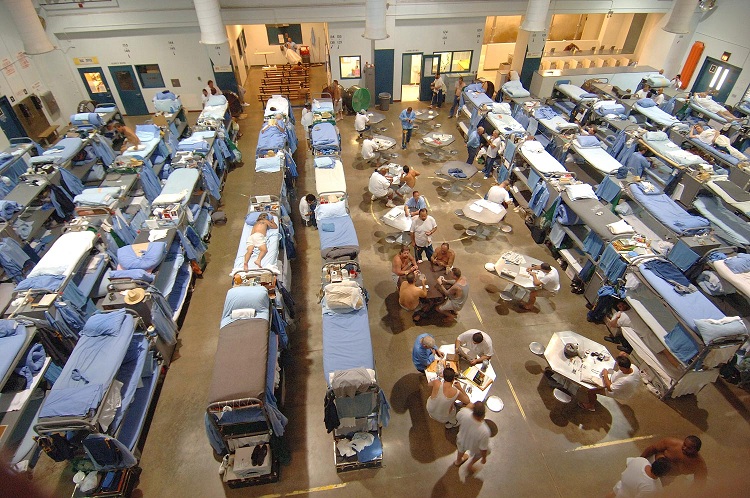
Alternatives to Detention
Some jurisdictions have implemented alternatives to pretrial detention, such as electronic monitoring, community supervision, and social services, to mitigate the negative impact of incarceration on individuals awaiting trial.
In response to the ongoing challenges associated with pretrial detention, several jurisdictions have taken progressive steps by implementing a variety of alternatives. These innovative approaches aim to alleviate the adverse consequences of incarceration for individuals who are awaiting trial, while still addressing concerns related to public safety and court appearances. Here, we’ll delve deeper into some of these alternatives and explore how they contribute to a more equitable and effective pretrial justice system.
1. Electronic Monitoring: Electronic monitoring represents a technology-driven alternative to pretrial detention. In this approach, individuals awaiting trial wear ankle bracelets equipped with tracking devices. This allows authorities to monitor their movements and ensure compliance with court-ordered conditions, such as curfews or stay-away orders. Electronic monitoring allows individuals to remain in their communities and maintain employment and family connections, which can be critical in preventing negative outcomes associated with incarceration.
2. Community Supervision: Community supervision programs offer a more flexible and community-based approach to pretrial justice. Instead of being held in jail, individuals are released into the community under the supervision of pretrial services officers. These officers work with defendants to establish appropriate conditions of release, such as regular check-ins, drug testing, or participation in counseling programs. Community supervision seeks to balance public safety concerns with the preservation of individual liberty.
3. Social Services and Diversion Programs: Some jurisdictions have recognized that addressing underlying issues, such as substance abuse or mental health problems, can be more effective than incarceration. They have developed pretrial diversion programs that connect individuals with necessary social services, treatment, and support systems. These programs aim to address the root causes of criminal behavior and provide individuals with opportunities for rehabilitation and personal growth while awaiting trial.
4. Risk Assessment Tools: Risk assessment tools have gained prominence in the effort to make pretrial decisions more equitable and data-driven. These tools evaluate an individual’s risk of failing to appear in court or reoffending, helping judges make informed decisions about release conditions. By relying on objective criteria, risk assessment tools aim to reduce biases in pretrial detention decisions.
5. Cash Bail Reform: Many jurisdictions are reevaluating their cash bail systems, recognizing that they often result in the pretrial detention of individuals solely because they cannot afford bail. Bail reform efforts seek to reduce the reliance on money as a determinant for release and instead prioritize risk assessment and community-based alternatives.
6. Legal Representation: Access to legal representation is a fundamental aspect of pretrial justice. Providing individuals with competent counsel can help them navigate the complexities of the legal system, make informed decisions, and advocate for their release on appropriate terms.
7. Data and Accountability: To ensure the effectiveness and fairness of these alternatives, many jurisdictions are collecting data and conducting ongoing evaluations. This commitment to accountability helps identify areas for improvement and informs policy decisions to create a more equitable pretrial justice system.
In conclusion, the adoption of alternatives to pretrial detention represents a significant shift in the way the criminal justice system approaches individuals awaiting trial. These alternatives prioritize individual rights, public safety, and the pursuit of justice by seeking alternatives that mitigate the negative consequences of incarceration. While challenges remain, these innovative approaches contribute to a more equitable and effective pretrial justice system that balances the principles of fairness, liberty, and community safety.
Should you desire more in-depth information, it’s available for your perusal on this page: Untitled

Legal Challenges
Various legal challenges have been mounted against lengthy pretrial detentions, asserting violations of due process and equal protection rights.
Various legal challenges have been mounted against lengthy pretrial detentions, asserting violations of due process and equal protection rights. These legal challenges reflect the growing recognition that excessively long periods of pretrial detention not only infringe upon the fundamental rights of individuals but also have significant societal implications. To further explore this issue, let’s delve into some extended ideas:
Presumption of Innocence: Central to these legal challenges is the principle of the presumption of innocence. Lengthy pretrial detentions can undermine this fundamental presumption, as individuals are confined in jail without having been convicted of a crime. This erodes public trust in the justice system and raises concerns about wrongful convictions.
Ineffective Assistance of Counsel: Prolonged pretrial detentions can strain the resources of public defenders and lead to inadequate legal representation. Legal challenges often argue that defendants are unable to mount an effective defense when confined for extended periods, thereby violating their right to counsel.
Disproportionate Impact: These challenges often highlight the disproportionate impact of lengthy pretrial detentions on marginalized communities, particularly people of color and those with limited financial means. Such detentions can exacerbate existing disparities within the criminal justice system.
Bail Reform: Legal challenges have played a pivotal role in advocating for bail reform. They call attention to the fact that individuals who cannot afford bail are disproportionately affected by pretrial detention, effectively criminalizing poverty. Bail reform efforts seek to address this issue by promoting alternatives to cash bail.
Case Backlog: Extended pretrial detentions can contribute to case backlog in the criminal justice system. Legal challenges often underscore how delays in court proceedings can be detrimental to both defendants and the efficient administration of justice.
Human Rights Concerns: These legal challenges also resonate on the international stage, as they raise human rights concerns. International bodies and organizations may scrutinize the U.S. criminal justice system for violations of global standards on detention and due process.
Alternatives to Detention: Legal challenges have spurred discussions on alternatives to detention, such as electronic monitoring, community supervision, or mandatory reporting. These alternatives aim to strike a balance between ensuring appearance in court and preventing unnecessary pretrial incarceration.
Legislative Reforms: Successful legal challenges often lead to legislative reforms. These reforms can include changes in bail practices, the establishment of time limits for pretrial detention, and increased investment in diversion programs to address the root causes of alleged criminal behavior.
Data and Transparency: Legal challenges have underscored the need for greater transparency and data collection regarding pretrial detention practices. Access to comprehensive data can help identify trends, disparities, and areas in need of reform.
Public Opinion and Advocacy: Legal challenges also serve as catalysts for public awareness and advocacy efforts. They can galvanize support for criminal justice reform initiatives and promote public dialogue on issues related to pretrial detention.
In conclusion, legal challenges against lengthy pretrial detentions are not just legal disputes; they represent a broader movement seeking to uphold constitutional rights, reduce inequalities in the justice system, and create a more fair and effective criminal justice system. These challenges play a vital role in shaping the ongoing conversation about pretrial detention practices in the United States and around the world.
To expand your knowledge on this subject, make sure to read on at this location: How race impacts who is detained pretrial | Prison Policy Initiative

Pretrial detention is a complex issue within the U.S. criminal justice system. While it serves essential purposes like ensuring court appearances and public safety, it can also lead to significant hardships for detainees, especially those who are economically disadvantaged. Efforts to reform the pretrial detention system, such as bail reform, alternatives to detention, and legal challenges, are ongoing as society seeks to balance the imperative of protecting the public with the principles of justice, fairness, and individual rights.
nullFor additional details, consider exploring the related content available here Khatib v. County of Orange (9th Cir.) — Brief as Amicus
More links
You can also read more about this here: Bell v. Wolfish :: 441 U.S. 520 (1979) :: Justia US Supreme Court …
